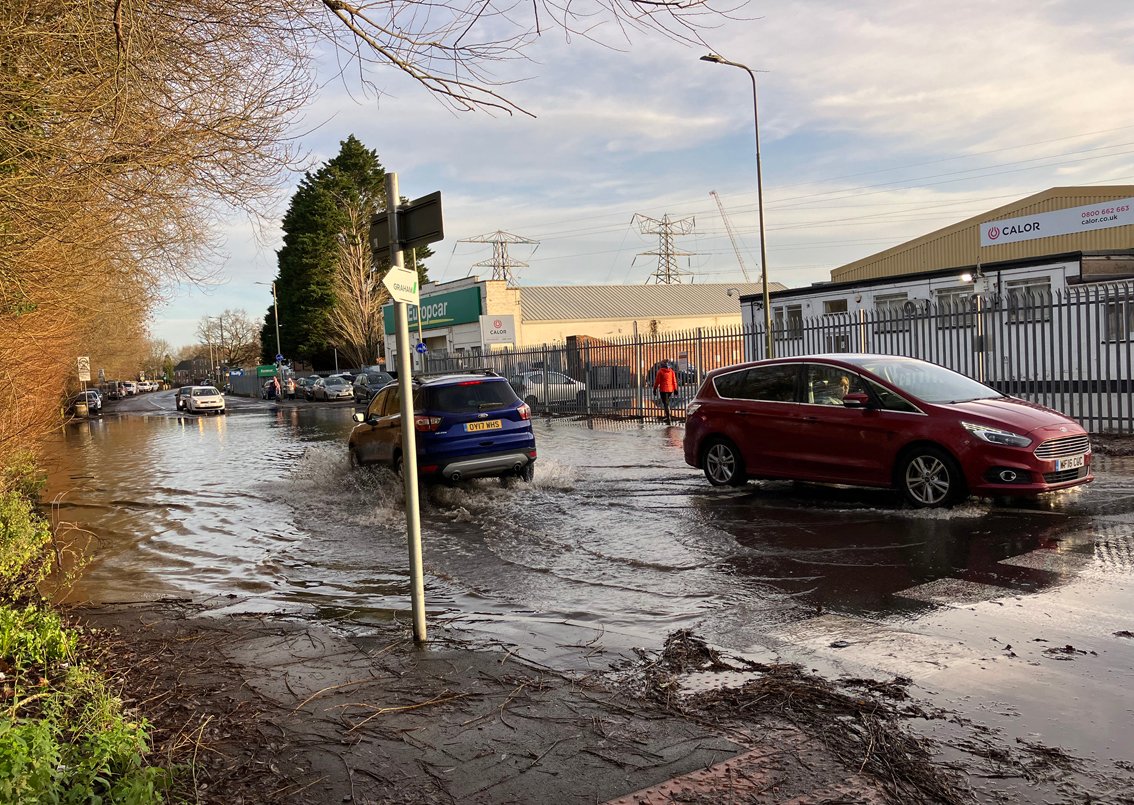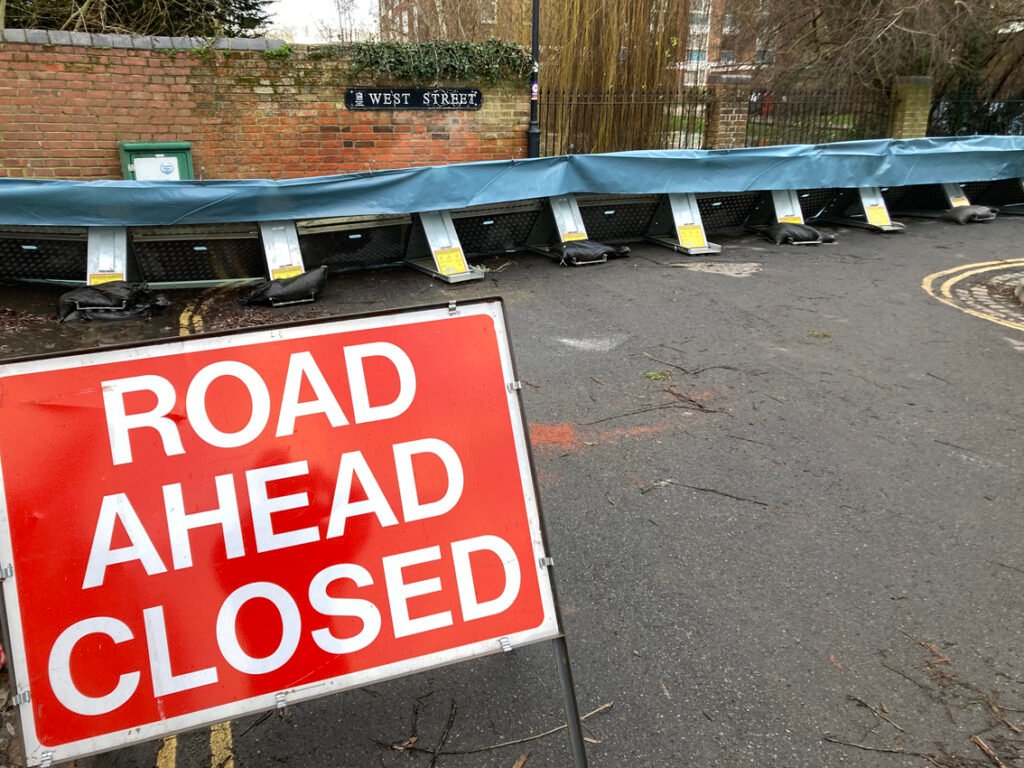Get on your bike to stop flooding

By Lucy Giuliano and Jane Buekett
Lucy is Campaigns Director of Cyclox and Jane is a volunteer
Ten years ago, in January 2014, Oxford experienced terrible flooding. Abingdon and Botley Roads were closed to traffic and hundreds of properties were inundated. This past week, on the exact anniversary of that disaster, the city has again been hit by serious flooding.
Relentless rain has caused rising river levels that have submerged roads, disrupted public transport and caused substantial economic losses. Homes and businesses have been flooded and gardens filled with sewage. Abingdon Road was closed for days, and other parts of the county have been even more badly affected.
The Environment Agency, local authorities and emergency services have been working tirelessly to keep the water out of homes, using flood barriers and pumps. The prime minister Rishi Sunak visited the city to see this work at first hand and speak with some of those affected.
Why is this happening?
A Guardian article of 7 January, “Warmer winters and more flooding will be the norm in the UK, scientists warn” features a quote from hydrometeorologist Dr Linda Speight of Oxford University. Her research seeks to develop early warning systems to improve disaster risk management, particularly for flooding.
She explains: “Climate change is warming the atmosphere. A warmer atmosphere can hold more moisture so that when it rains, the rainfall is heavier and more likely to lead to flooding. In particular, we know that climate change is leading to warmer and wetter winters in the UK. We will unfortunately experience more winters like this one in the future.”
This is evidenced by data from the UK Centre for Ecology & Hydrology which shows that “2023 saw the wettest July–December period on record for the UK as a whole (dating to 1890)”.
Transport emissions contribute significantly to climate change. In Oxford, they account for 17% of emissions. It is well documented that fossil-fuel powered vehicles not only harm our health, they contribute to climate change.

Rather than waiting for more extreme events we need to do all we can to halt climate change now.
What is Oxford doing about it?
With initiatives like the Zero Emission Zone (ZEZ) and a new electric fleet of buses, Oxford is encouraging and enabling sustainable alternative forms of travel. Cycling – low-cost, efficient and with no emissions – is an obvious solution. This is why Cyclox is focusing on making cycling safer and more accessible for more people, and encouraging them to bike instead of driving.
To achieve this, we need to understand each other’s perspectives and work together. In 2014 Cyclox member Jamie asked his neighbours if they felt there was a link between climate change and flooding. He asked the same question this week, 10 years on. There was a mixed response but 91-year old Betty had changed her mind. Back in 2014 she was certain there was no connection, but now she is convinced that climate change is the cause. This time she responded without hesitation “Of course it is, everything is getting more extreme”.
Whether or not you agree with Betty, it cannot be denied that the floods this week have resulted in significant damage to communities, homes and businesses that will cost money and time to repair. It is increasingly clear that we are seeing more of this intense weather at local, national and global level.
What can I do?
It can be challenging to acknowledge that humans are damaging our own environment and that we need to change our behaviour fast. Rather than waiting for more extreme events we need to do all we can to halt climate change now.
It isn’t easy but we have to make a choice. We either sink or swim. Or we could cycle more.
Image credits
Main photo: Simon Collings
Road closed: Jane Buekett
